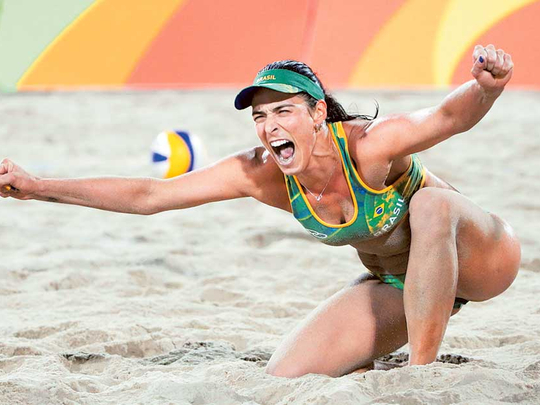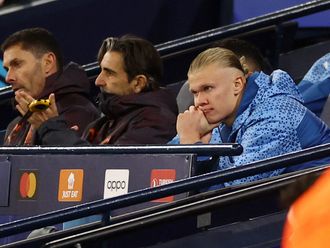
Rio de Janeiro: The bus to ferry us from the Rio airport to the city had just made its way past the first welcome gate saying ‘Um mundo novo’ (A new world), when Alex – the tour guide – started his address with what has now become a statutory warning about the city.
“You will surely enjoy your stay here. However, let me tell you that Rio is a city with a very high crime rate. Try to stick to your group as much as you can, be discreet when you speak on your mobile phone…,” was some of his friendly advice as our bus worked its way through the often narrow roads, the overwhelming cluster of favelas that are impossible to miss – before grinding to a stop at a small traffic signal.
The familiar words of caution may have just made the mood in the group a little apprehensive but a non-descript signpost then brought back an air of anticipation – ‘Maracana’ and ‘Copa Cabana.’ Two desinations in Rio that have shaped the consciousness of admirers of all things Brazilian around the world – from the beautiful game to the women and the beaches.
As we take the final turn to get the first glimpse of the beachfront – the huge edifice of the makeshift stands acting as the venue for beach volleyball comes in the way. The location of the venue for the sport had been a masterstroke as it seemed party time there, even though it was late afternoon and a weekday.
The strand along a major part of the beachfront has been virtually taken over though by rows of ubiquitous giant white tents – acting as hangars for TV crews’ vans, media centres, officials of the sport et al. However, the teeming life on the beach continues to flow unaffected, as a visit there in the late evening confirms.
The beachfront shacks are abuzz with loud chatter, music and an aroma of fried food while there is a huge medley of physical exercises in progress – from the habitual joggers, the amateur beach volleyballers whose skills bely their status, medicine balls and what have you. A flea market has pride of place on the other side of the road, heavy with souvenirs with the branding of Rio, Copa Cabana and the jerseys of Brazil’s most famous son at the moment – Neymar.
The Brazilian striker and captain had been at the forefront of a campaign to bring them some succour in the shape of an Olympics gold after their World Cup nightmare here barely two years back, the overflowing supply of jerseys at the market (with varying sizes and designs) showed only one name at the back – that of their No.10. The price, after much surveying, seems to be the same everywhere – 25 Brazilian Reals (Dh29) and uncharacteristically for a flea market, it seemed non-negotiable.
The language on the street is a problem with Portuguese ruling the roost, but the way one of the woman vendors reacted – it seemed that her gesticulation meant that if you are looking for a ‘Neymar’s shirt,’ you have to pay premium.
As the first-ever Olympics in South America reaches it’s business-end here, one cannot help but appreciate the fact that the success of Rio as hosts have to be seen in a different perspective altogether. To put in the words of their Mayor Eduardo Paes sometime back, the success of Rio should be measured against Rio and not cities like London, New York or Chicago.
What Paes must have meant was: the sporting world has to be ready to accept Rio’s success or failure with all it’s warts. Well, they are nearly there – with a few more incident-free days of course!











